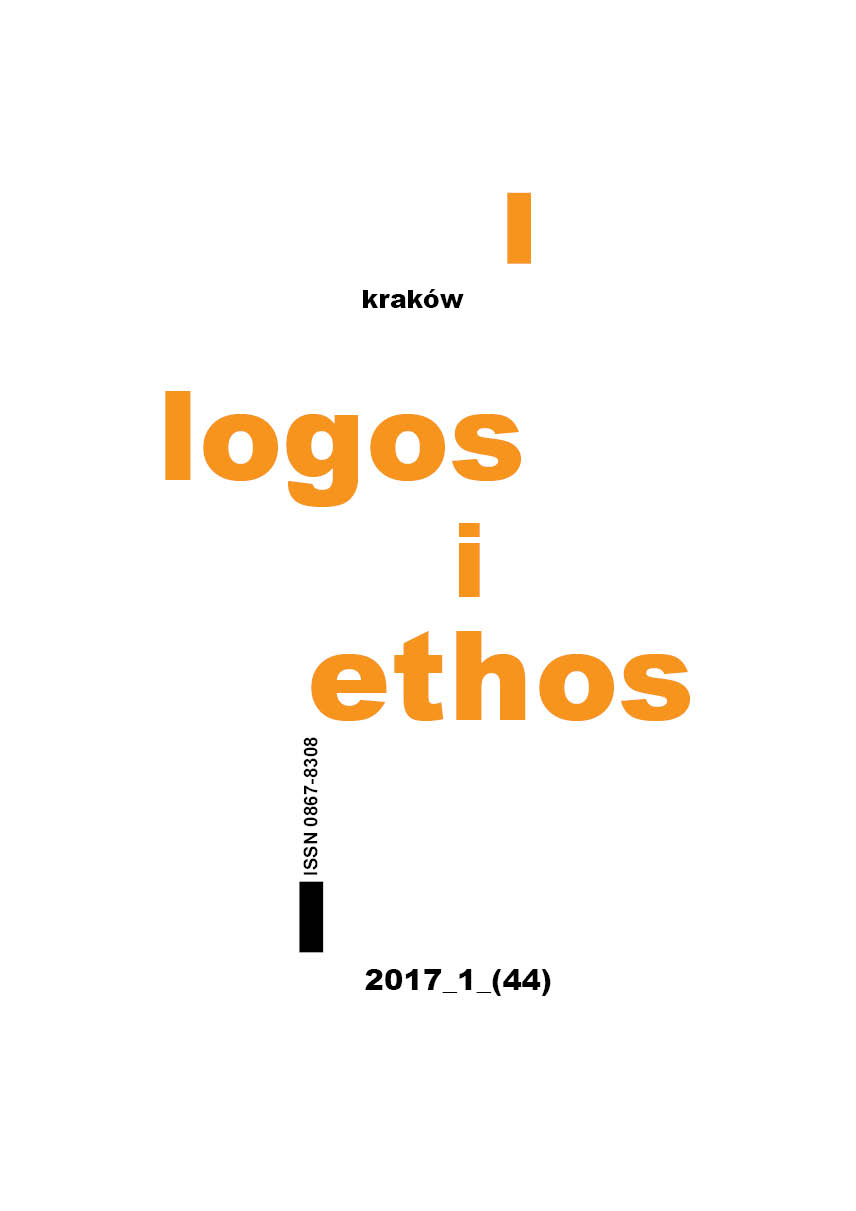Realist Phenomenology and Philosophy of Religion. A Critical Reflection
DOI:
https://doi.org/10.15633/lie.2121Słowa kluczowe:
Phenomenological realism, realist phenomenology, faith and reason, Catholicism and philosophy, entanglement, Josef SeifertAbstrakt
The aim of the present paper is to show that Catholicism is not a closed segment of contemporary philosophy but rather a rich source of traditions and developments which are alive even today and can help to understand our philosophical situation and contribute to a renaissance of influential philosophy in our culture. In more detail, I shall focus on the importance of Catholic philosophy in its history and present day situation as part and parcel of our general philosophical traditions. I offer a list of models describing the possible relationships between Catholicism and philosophy. I identify the unity model as a model connected to phenomenological realism; and I will detail the important contribution of Josef Seifert to such a phenomenological realism. Phenomenological realism as an expression is offered here as a modification of realist phenomenology, a modification based on the recognition of what I term the entangled nature of reality.Bibliografia
Benedict XIV, Pope, Apostolic Journey Of His Holiness Benedict XVI to München, Altötting and Regensburg (September 9–14, 2006), http://www.vatican.va/holy_father/benedict_xvi/speeches/2006/september/documents/hf_ben‑xvi_spe_20060912_university‑regensburg_en.html.
Clement of Alexandria, Stromata, in: The Ante‑Nicene Fathers, eds. A. Roberts, J. Donaldson, vol. 2, New York 1913, p. 299–569.
Dietrich von Hildebrands Kampf gegen den Nationalsozialismus, Hrsg. J. Seifert, Heidelberg 1998.
Hessen J., Religionsphilosophie, Vols 1–2, München–Basel 1948.
Husserl E., Cartesian Meditations. An Introduction to Phenomenology, transl. D. Cairns, The Hague–Boston–London 1960.
Husserl E., Cartesianische Meditationen und Pariser Vorträge, Hrsg. S. Strasser, Haag 1950 (Hua I).
John Paul II, Pope, Encyclical Letter FIDES ET RATIO of the Supreme Pontiff John Paul II to the Bishops of the Catholic Church on the Relationship between Faith and Reason, Rome 1998, http://www.vatican.va/holy_father/john_paul_ii/encyclicals/documents/hf_jp‑ii_enc_15101998_fides‑et‑ratio_en.html.
Liberatore, Matthaeus, Institutiones philosophicae, vol. 1–2, Romae 1857.
Mezei B. M., Demythologizing Christian Philosophy: An Outline, “Logos i Ethos” 2013 nr 2 (35), p. 109–146.
Mezei B. M., Radical Revelation: A Philosophical Approach, New York (forthcoming in 2017).
Mezei B. M., Religion and Revelation after Auschwitz, New York 2013.
Plato, The Complete Works, ed. J. M. Cooper, Indianapolis–Cambridge 1997.
Scheler M., Vom Ewigen im Menschen, Berlin 1933.
Seifert J., Back to Things in Themselves. A Phenomenological Foundation for Classical Realism, London–Boston 1987.
Seifert J., Berührung der Kulturen. Die Rolle der realistischen Phänomenologie im Dialog zwischen Religionen und Zivilisationen, Rabat 2004.
Seifert J., Christian Philosophy and Free Will, introduced by J. Finnis, South Bend (forthcoming in 2017).
Seifert J., Dietrich von Hildebrands philosophische Entdeckung der ‘Wertantwort’ und die Grundlegung der Ethik. In Memoriam Dietrich von Hildebrand 1889–1989, “Aletheia” 5 (1992); http://www.iap.li/oldversion/site/research/Aletheia/Aletheia_V/hilds.doc.
Seifert J., Discours des Méthodes. The Methods of Philosophy and Realist Phenomenology, Frankfurt–Paris–New Brunswick 2008.
Seifert J., Erkenntnis des Vollkommenen. Wege der Vernunft zu Gott, Bonn 2010.
Seifert J., Erkenntnis objektiver Wahrheit, Salzburg–München 1972.
Seifert J., Essere e persona. Verso una fondazione fenomenologica di una metafisica classica e personalistica, Milano 1989.
Seifert J., Gott als Gottesbeweis. Eine phänomenologische Neubegründung des ontologischen Arguments. Heidelberg 1996 (2000).
Seifert J., Überwindung des Skandals der reinen Vernunft. Die Widerspruchsfreiheit der Wirklichkeit – trotz Kant, Freiburg 2001.
Seifert J., Das Wesen der Wahrheit und die Person. De veritate – Über die Wahrheit, Bd. 1–2, Frankfurt– Paris–Ebikon–Lancaster–New Brunswick 2009.
Seifert J., What is Life? On the Originality, Irreducibility and Value of Life, Amsterdam 1997.
Taylor Ch., A Secular Age, Cambridge–Massachusetts–London 2007.
Pobrania
Opublikowane
Numer
Dział
Licencja
W kwestii praw autorskich obowiązują następujące zasady:
1. Twórca oświadcza, że służą mu prawa autorskie do utworu i że nie są ograniczone w zakresie objętym niniejszym oświadczeniem oraz że utwór jest dziełem oryginalnym i nie narusza praw autorskich innych osób.
2. Twórca zezwala Uniwersytetowi Papieskiemu Jana Pawła II w Krakowie na nieodpłatne, niewyłączne i nieograniczone w czasie korzystanie z utworu, to jest:
- utrwalanie i zwielokrotnianie: wytwarzanie egzemplarzy utworu techniką drukarską, reprograficzną, zapisu magnetycznego oraz techniką cyfrową;
- obrotu oryginałem albo egzemplarzami, na których utwór utrwalono (wprowadzanie do obrotu, użyczenie lub najem oryginału albo egzemplarzy, publiczne wystawienie, wyświetlenie, a także publiczne udostępnianie utworu w taki sposób, aby każdy mógł mieć do niego dostęp w miejscu i w czasie przez siebie wybranym);
- włączenie utworu w skład utworu zbiorowego;
- udzielanie przez Uniwersytet Papieski Jana Pawła II w Krakowie sublicencji Creative Commons Uznanie autorstwa 4.0 Międzynarodowe (CC BY 4.0)
3. Uniwersytet Papieski Jana Pawła II w Krakowie udostępnia utwór na Platformie Czasopism należącej do uczelni, na licencji Creative Commons Uznanie autorstwa 4.0 Międzynarodowe (CC BY 4.0). Tym samym uprawnia wszystkich zainteresowanych do korzystania z utworu pod następującymi warunkami:
- zostanie podany autor i tytuł utworu,
- zostanie podane miejsce publikacji (tytuł czasopisma i adres internetowy do oryginalnie opublikowanego utworu).

